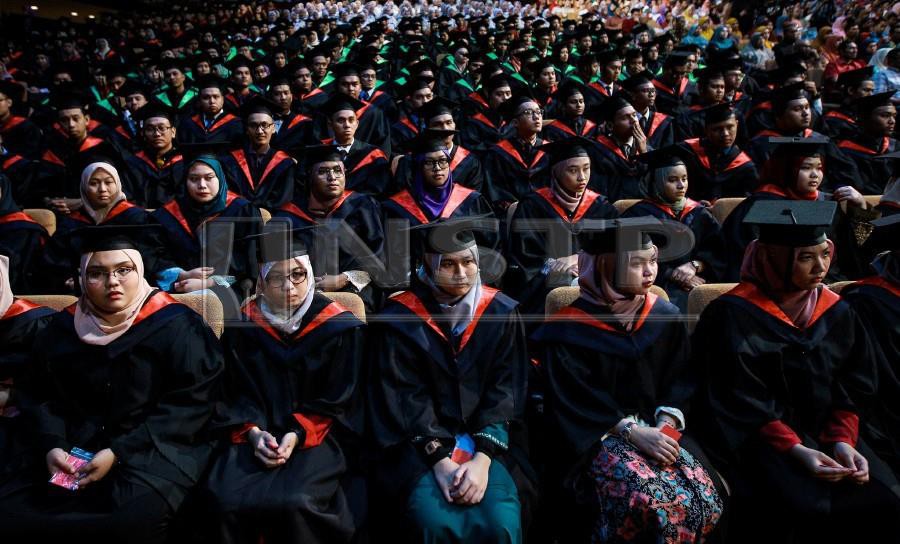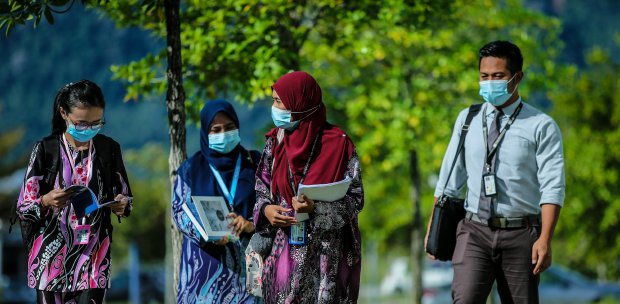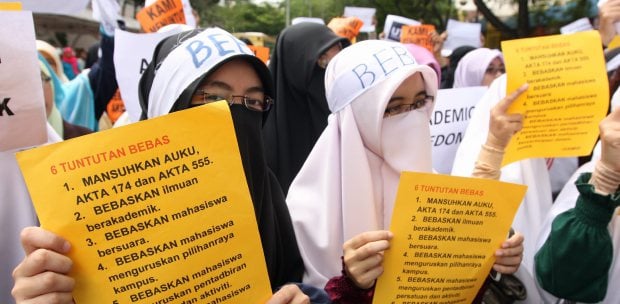KUALA LUMPUR: The Federation of Malay Students Union (GPMS) has urged students to seize the opportunity provided to them following the government’s move to amend the Universities and University Colleges Act (AUKU) 1971.
GMPS president, Zambri Mohd Isa, reminded university and college students that although the AUKU amendment opens up opportunities for them to become involved in politics, they should not lose sight of their main focus in university, which is education.
“I agree that the amendment to the AUKU has opened the door to enabling freedom of politics.
“But do not abuse the privilege, as it has to be accompanied by a sense of responsibility.
“Some of the concerns include ‘total freedom’ which without restrictions, could lead to divisions and see universities become a hotbed for the spread of ideologies,” he told NSTP.
Zambri also urged the Education Ministry to develop guidelines for university authorities without sidelining democratic rights.
“The guidelines have to be uniform in nature. This can be discussed with the universities themselves as they have autonomy.
“The guidelines can include, for example, who can be involved in politics or otherwise. Without any guidelines, it would not be too far fetched to say that some will even set up new political parties to contest in the general election,” he said.
On Monday, the Dewan Rakyat had unanimously approved the amendments to the AUKU 1971, which enables students to become involved in politics.
The amendment, which saw the abolishment of Section 15(2)(c) AUKU which bars them from being involved in politics on campus, has opened up more freedom and opportunities for students.
The amendments were passed after the third reading by Education Minister Dr Maszlee Malik.
Meanwhile, Universiti Putra Malaysia (UPM) Students Representatives Council chairman, Muhammad Izzuddin Rosli, said the move appeared to be in line with Maszlee’s aspirations, which were to ultimately have the students themselves manage campus elections.
“There are positives and negatives. What is certain is that with the amendment, it will help students become more aware of politics. They also have a head start with regards to political education.
“It would be good if the voting age too could be reduced to 18.
“However, one of our concerns is that some may become too obsessed by politics to the extent of becoming extremists,” he said.
Universiti Teknologi Mara (UiTM) Students Representatives Council chairman, Muhammad Syahid Aiman Muhammad Bazlan, said the amendments have freed up students to become involved in politics, both on and off campus.
This, he said, was a manifestation of efforts to empower students and enable their voices to be heard and appreciated.
“I also urge fellow students to adopt a more mature view when it comes to politics. Each statement or view propounded has to have basis and with prior research done.
“They should not swallow everything wholesale from social media. I also hope that none of them will abuse this freedom by triggering unwanted incidences or by touching on sensitive matters at the risk of upsetting the nation and campus’ harmony.
“Students should also portray a positive image and practice a healthy political culture, both on and off campus. They are the nation’s future leaders and as such, we want youngsters who are mature, brave and wise,” he said.





